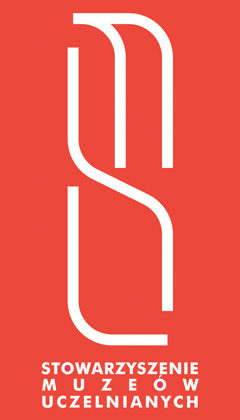Museum of the Kraków University of Economics
ul. Rakowicka 27
31-510 Kraków
Tel. (12) 293 59 76
muzeum@uek.krakow.pl
http://archiwumuek.uek.krakow.pl/pl/kategorie-dodatkowe/muzeum-uek.html
www.muzeum.uek.krakow.pl
Free admission
The exhibition hall is located in the Main Building, Room 110; temporary exhibitions are currently held in the
Main Library of the University of Economics. Tours of the permanent exhibition, and optionally also the historic part of the campus, are available by appointment only. Please contact the custodian of the museum.
Custodian: Tadeusz Filar PhD
Today’s Kraków University of Economics was established in 1925 as the Higher College of Trade (Wyższe Studium Handlowe) in Kraków, on the initiative of professors Arnold Bolland, Albin Żabiński and Zygmunt Sarna, who taught at the Trade Academy which had secondary school status. The academy (previously known as the Higher College of Trade) had existed since 1896. In 1906, Dr Józef Kannenberg was appointed its director, which had a signicant impact on its development. At that time it also acquired its seat at ul. Kapucyńska 2, and two years later began to operate under its new name – until 1924. In 1916, Arnold Bolland analysed the condition of schools of commerce in Galicia, and two years later he expressed the need to establish a specialized academic institute, a college of commerce, to educate a new type of
Polish merchant – who would have a creative role in social life. This idea came to fruition in the years 1924–1925: at ul. Kapucyńska 2, first the Institute of Commodities was established, and a year later it changed its name to the Higher College of Trade, headed by Arnold Bolland. In the years 1927–1931, new buildings were erected at ul. Sienkiewicza 4 and 5. The Higher College of Trade in Kraków was classified as an academic school and, from 1 September 1938, its name was changed to the Trade Academy. When Arnold Bolland, who was elected the first rector of the academy,
resigned due to ill-health in June 1939, the Board of Professors appointed as his successor Albin Żabiński, who was replaced as vice-rector by Prof. Stanisław Bieńkowski. Among the research and teaching staff arrested on 6 November 1939, as part of the Sonderaktion Krakau operation, were professors of the academy: Arnold Bolland, Zygmunt Sarna, Walenty Winid and the rector, Albin Żabiński (the first two also lectured at the Jagiellonian University). During the war the Trade Academy in Kraków conducted clandestine classes until it was able to resume its legal activities after 18 January 1945. The academy was nationalized in 1950, and renamed the State Higher School of Economics, with a new seat at ul. Rakowicka 27, in buildings that had been erected in the years 1891–1893. The premises became vacant after liquidating the Prince Aleksander Lubomirski Foundation for boys from poor families in 1950. Other such foundations in Poland were also liquidated at that time. By a Decree of the Council of Ministers of 29 April 1974, the school, like those in Poznań, Katowice and Wrocław, became the Academy of Economics. In July 2007, by decision of the Polish parliament, the academy in Kraków was transformed into the University of Economics. The university’s museum was opened on 5 October 2004 – 30 years after the opening of the Cabinet of Memorabilia at the Academy of Economics. The latter collections were amassed by Józef Tracz (1929–2011), a graduate of the academy in 1952 and its administrative director for several decades. The first custodian of the museum was Marta Turmińska-Biały (until 2015), and later Tadeusz Filar, a historian associated with the academy since 1987. In 2015, a collection of memorabilia on the history of the academy and its community, amassed by Kazimierz Gołdas (1928–2009), the son of the first school janitors, and from 1945 an employee for 57 years, was included in the museum’s collection.
Tadeusz Filar PhD













